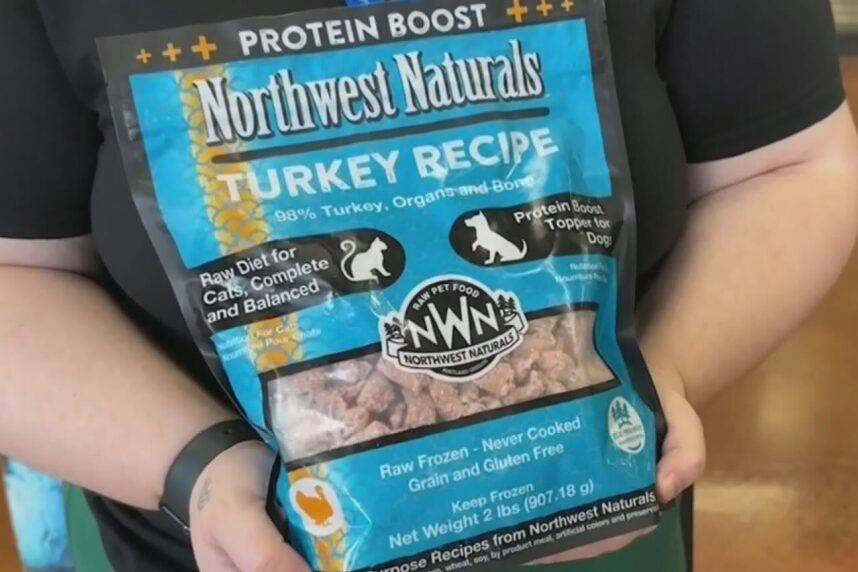1. Why Is Bird Flu Causing Pet Food Recalls?

If you’re a pet owner, the last thing you want to hear is that your pet’s food could be unsafe. But in 2025, that concern became real when several brands of frozen pet food were recalled due to potential bird flu contamination. This isn’t just a precautionary measure—bird flu, or avian influenza, is a serious viral infection that primarily affects birds but can occasionally spread to mammals, including pets. The recall came after health authorities found traces of the virus in certain poultry-based pet foods, raising fears about potential transmission. While cases of pets actually getting sick from bird flu remain rare, the risk is significant enough that experts are urging pet owners to take the situation seriously.
The problem lies in how some raw and frozen pet foods are processed. Unlike traditional dry kibble or canned pet foods, frozen raw foods often contain minimally processed ingredients, which may not be cooked at high enough temperatures to kill viruses. This makes them more susceptible to contamination if the poultry used in production was infected. Even though freezing can slow down viral activity, it doesn’t necessarily eliminate all pathogens. This recall serves as a wake-up call for pet owners to be extra vigilant about where their pet’s food comes from and how it’s handled.
2. What Brands and Products Are Affected?

When a recall like this happens, it’s natural to want to know exactly which products are involved. Several well-known pet food brands that specialize in raw and frozen diets have been impacted, with certain batches pulled from store shelves and online retailers. While the exact list of affected products continues to evolve, the majority of the recalls involve chicken and turkey-based pet foods. These proteins are the most common carriers of avian influenza, especially if sourced from flocks that weren’t properly screened for disease before processing.
Pet food manufacturers are now working closely with health regulators to ensure contaminated products are removed from the market as quickly as possible. If you’re feeding your pet a frozen raw diet, it’s crucial to check recall lists provided by the manufacturer or government agencies. Even if your specific brand hasn’t been mentioned, it’s a good idea to monitor updates in case the recall expands. The safest move is to temporarily switch to a fully cooked alternative until more information is available.
3. How Can Bird Flu Affect Pets?

Many pet owners are wondering whether bird flu poses a direct threat to their furry companions. While bird flu primarily affects birds, certain strains have been known to jump to mammals, including dogs and cats. This usually happens through direct contact with infected birds or contaminated food. Although the risk is relatively low, it is not zero, especially for pets that consume raw poultry or come into contact with infected wildlife. Some of the potential symptoms in pets include respiratory issues, lethargy, vomiting, and fever—though in many cases, infections may be mild or even asymptomatic.
The real concern is that bird flu viruses can evolve. If pets become infected, they could serve as hosts that allow the virus to mutate, potentially increasing the risk of transmission to humans. This is why veterinarians and health officials are urging pet owners to exercise caution. While the number of reported pet infections remains small, experts recommend limiting exposure by avoiding raw poultry-based diets and ensuring pets do not scavenge dead birds or interact with wild animals.
4. What Should Pet Owners Do If They Have Affected Food?

If you have frozen pet food in your home, especially chicken or turkey-based products, you should check the recall list immediately. If you find that your pet’s food is part of the recall, stop feeding it to them right away. Do not attempt to cook or disinfect the food, as certain viruses can survive even after being heated to some degree. The safest course of action is to seal the product in a plastic bag and dispose of it according to local guidelines to prevent further contamination.
Even if your pet has already consumed some of the recalled food, there’s no need to panic. Keep an eye on them for any signs of illness and consult your veterinarian if you notice anything unusual. In the meantime, switching to a cooked or commercially processed pet food option can reduce further risk. Some pet owners who prefer raw diets might consider transitioning to freeze-dried alternatives, which undergo additional processing steps that help eliminate harmful pathogens.
5. How Can You Protect Your Pets from Future Contaminations?

This recall is a reminder that food safety doesn’t just apply to humans—it’s just as important for pets. One of the best ways to protect them is to buy from reputable pet food brands that conduct thorough safety testing and source their ingredients responsibly. Choosing cooked or freeze-dried options over raw frozen food can also reduce the risk of exposure to harmful bacteria and viruses. While raw diets have gained popularity for their perceived health benefits, they do come with additional risks that require careful handling.
Another crucial step is proper food storage. If you choose to continue feeding raw or frozen pet food, make sure to follow storage guidelines strictly. Keeping pet food separate from human food, disinfecting food bowls regularly, and washing your hands after handling raw pet food can all help reduce cross-contamination. Staying informed about recalls and potential outbreaks will also be key in ensuring your pet’s safety in the long run.


